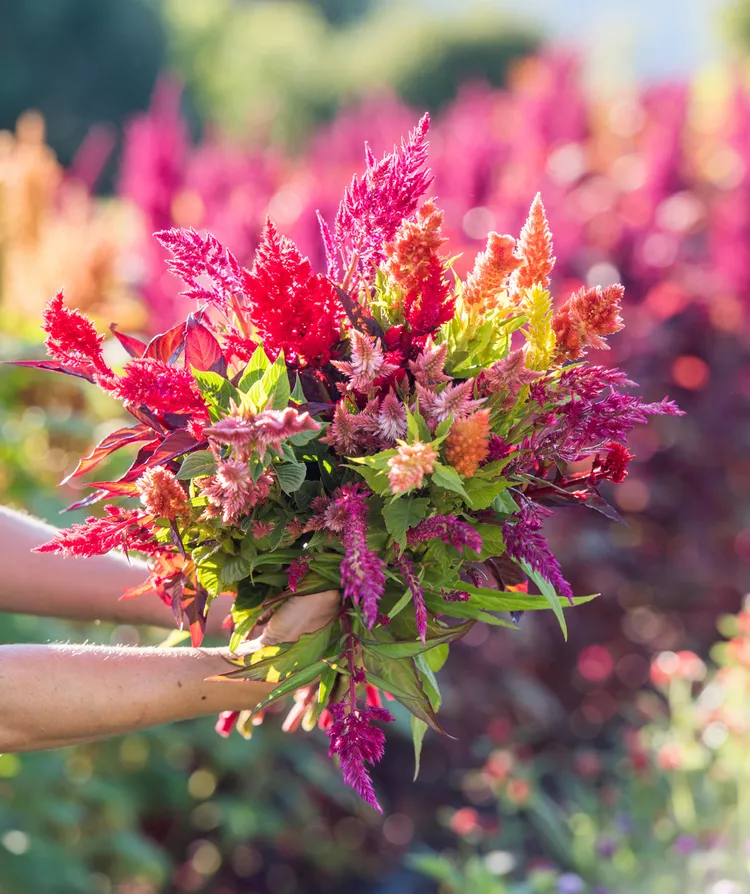
One of the best ways to fill your garden with color is to plant annual flowers, which grow quickly and bloom all season long. Several of these varieties are very easy to start from seeds which are less expensive and give you more exciting choices than buying plants at a garden center. Here are some of the easiest annual flowers to grow from seed, as well as tips for when and how to sow them.
01.Marigold
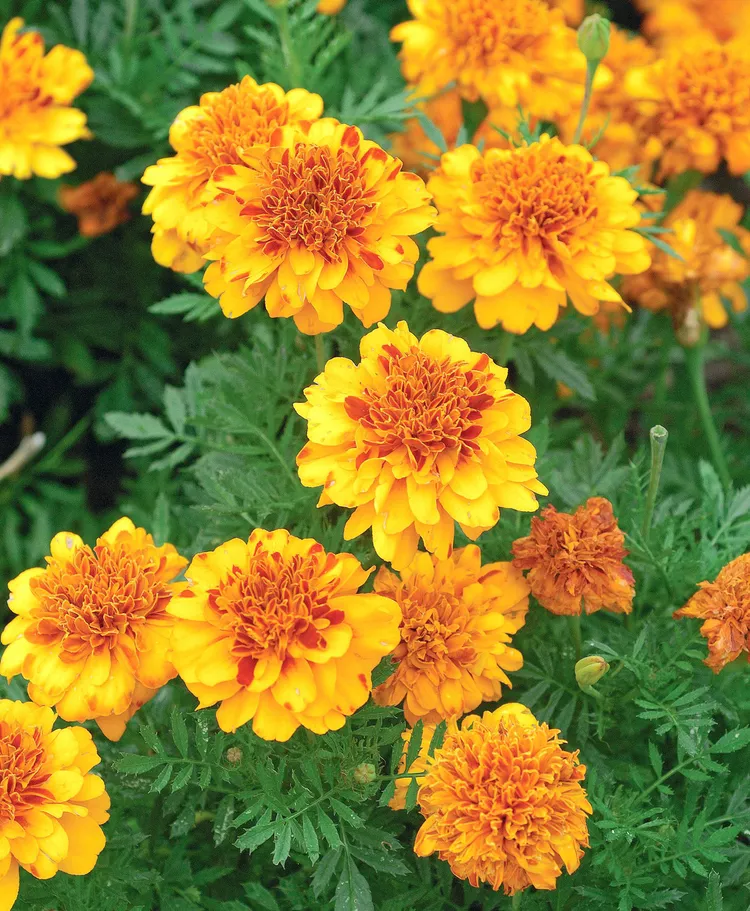
It’s hard not to love a marigold‘s bright yellow, orange, and red flowers. Happily, this is one of the easiest seeds to grow. You can sow marigold seeds directly into the garden after the last frost date. If you start seeds indoors, sow seeds one-eighth inch deep. Look for sprouts in less than a week.
Name: Tagetes selections
Growing Conditions: Full sun in evenly moist, well-drained soil
Size: Up to 1 foot tall
02.Bachelor's Button
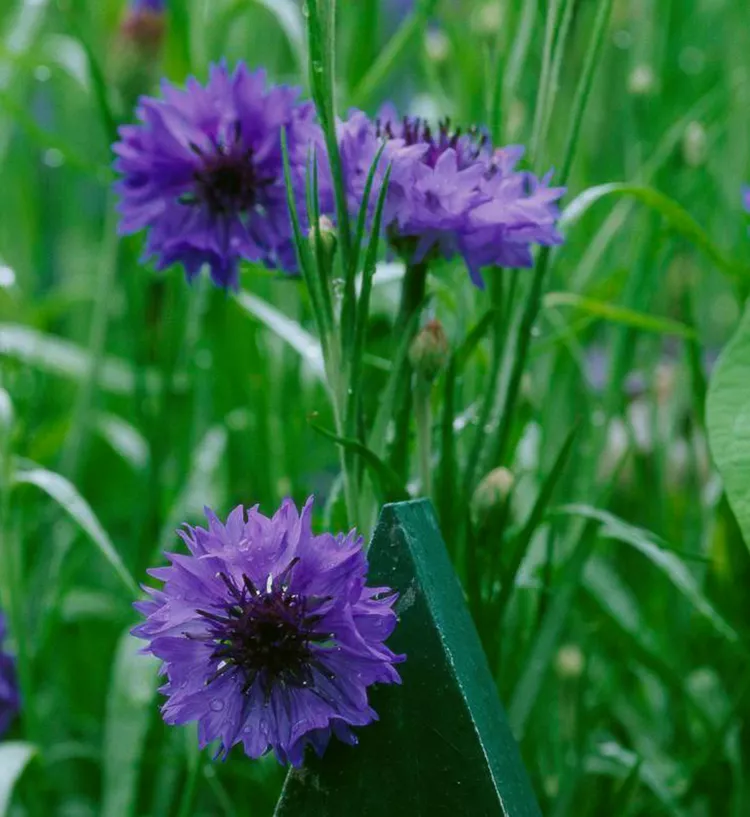
A charming annual that blooms in shades of blue, pink, and purple, bachelor’s button is a great choice for hot, dry sites. The flowers are perfect for cut- and dried-flower bouquets. Plant the seeds about one-eighth inch deep, and you’ll typically see sprouts in one to three weeks. You can plant seeds indoors six to eight weeks before last spring frost date or sow the seeds directly outdoors at the last spring frost date.
Name: Centaurea cyanus
Growing Conditions: Full sun to light shade in evenly moist, well-drained soil
Size: Up to 3 feet tall
03.Castor Bean
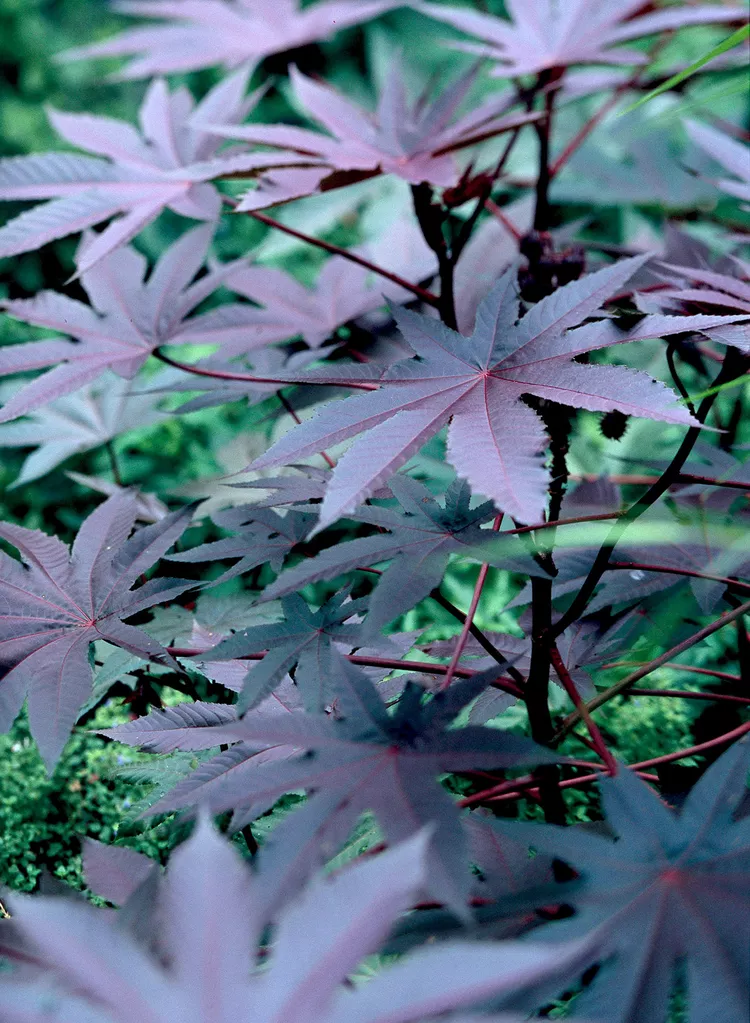
The fast-growing castor bean plant can go from a small seed to a 10-foot-tall specimen by the end of the season, even in northern Zones. Plant this warm-weather annual away from areas where children play because every part of this plant is poisonous if ingested. Plant the seed about one-half inch deep in indoor pots about six to eight weeks prior to the last spring frost date; it usually sprouts in one to three weeks. If you sow the seed directly outdoors, wait until the soil has warmed.
Name: Ricinus communis
Growing Conditions: Full sun in evenly moist, well-drained soil
Size: Up to 10 feet tall
04.Cleome
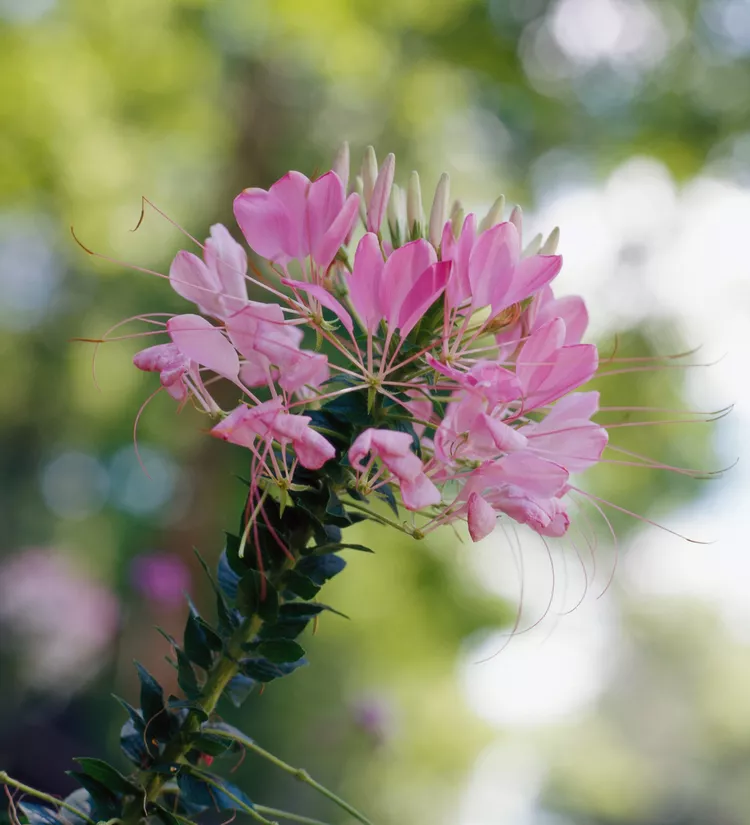
A perfect cottage-garden plant, cleome or spider flower bears spikes of fragrant blooms in shades of white, pink, magenta, and purple. It’s so easy, it practically starts itself! In fact, in many gardens it self-seeds year after year. Start this annual indoors six to eight weeks before the average date of last frost by spreading seeds over the ground without covering them; they don’t need to be covered because the seeds require light to germinate. You can also plant the seeds directly in the garden, but you’ll want to wait until the soil has warmed. Cleome seeds typically sprout in one to two weeks.
Name: Cleome hassleriana
Size: Up to 4 feet tall
Growing Conditions: Full sun in dry to medium, well-drained soil
05.Cosmos
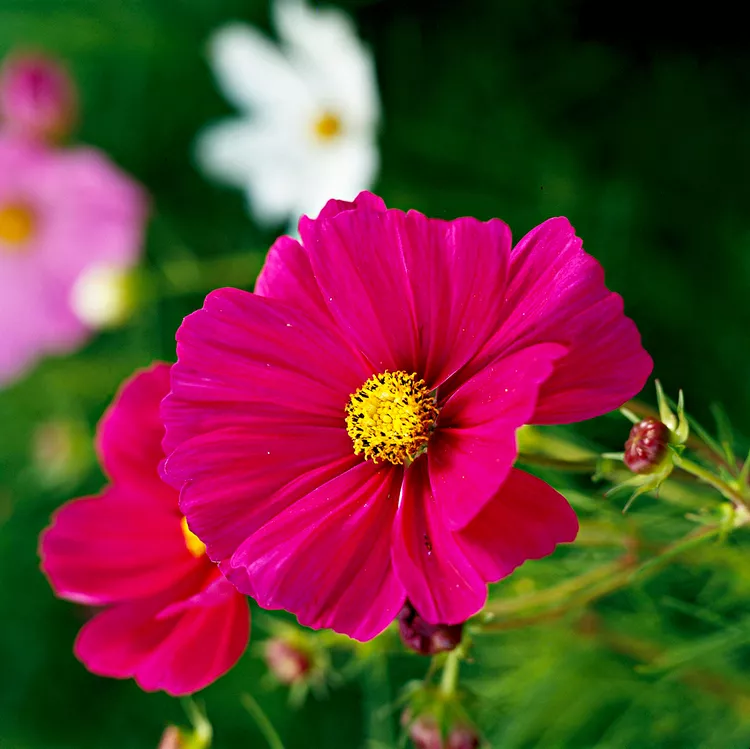
A must-have annual for sunny cottage gardens, cosmos offers ferny foliage and daisy-like flowers in shades of pink, magenta, white, yellow, and orange. This plant doesn’t mind hot, dry locations, so it’s ideal for low-maintenance gardens, too. And it often self-seeds. To plant the seeds outdoors, spread seeds over the ground just before last spring frost date and just barely cover them. Another option is to start the seeds indoors six to eight weeks before last spring frost date. The seeds usually sprout in one to three weeks.
Name: Cosmos selections
Growing Conditions: Full sun in evenly moist, well-drained soil
Size: Up to 4 feet tall
06.Purple Hyacinth Bean
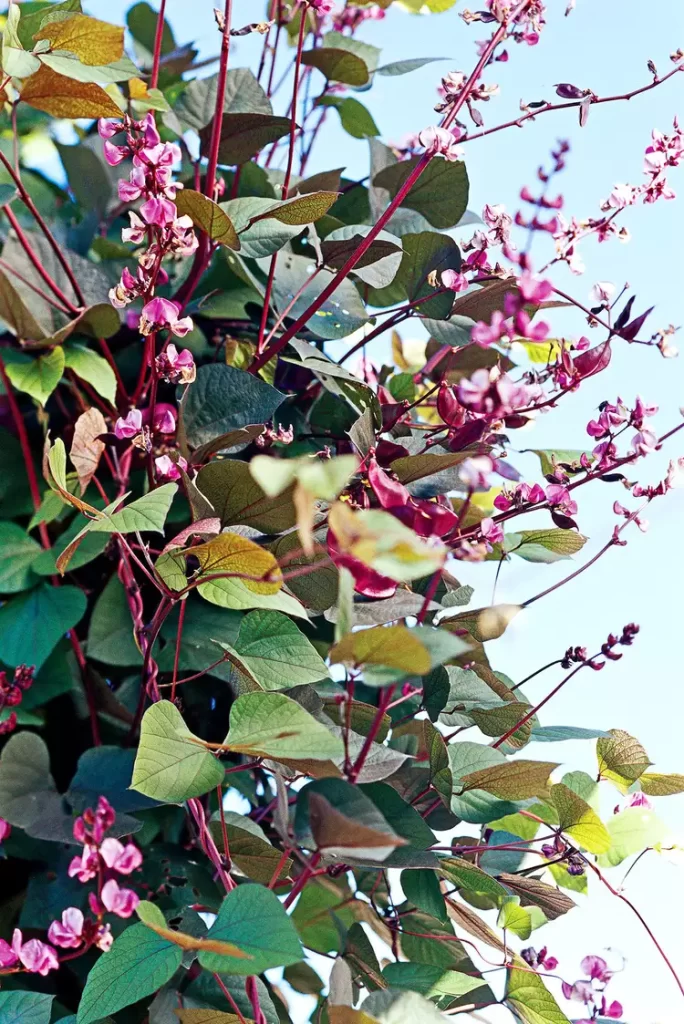
A spectacular but underused annual vine, purple hyacinth bean is a snap to start. Grow it in a sunny spot and be sure to give it a sturdy support on which to climb. Its spikes of fragrant, pea-like, rose-purple flowers can easily cover a trellis in a single season. Because the seeds are protected by a tough coat, soak the seeds in water for 12 hours before sowing or file away or nick off a small piece of the coat before planting. Sow seed one-fourth inch deep directly in the garden after the last frost date or start indoors six to eight weeks earlier. Look for the seeds to sprout in one to two weeks after planting.
Name: Lablab purpureus
Growing Conditions: Full sun in evenly moist, well-drained soil
Size: Up to 20 feet tall
07.Larkspur
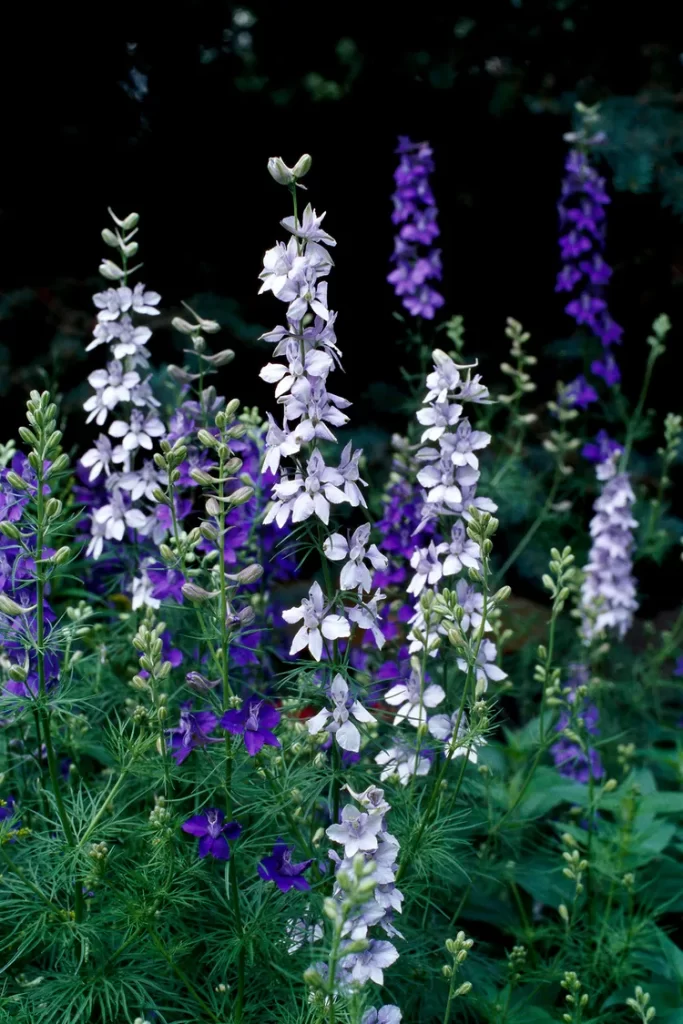
Light up a spring or fall garden with larkspur‘s spikes of blue, lavender, pink, or white flowers. This garden beauty often self-seeds, coming back each year all on its own. The easiest way to grow larkspur is to sprinkle the seeds in the garden in late winter or very early spring. This cool-season plant will sprout on its own. If you start seeds indoors, sow seeds one-eighth inch deep. It sprouts in three to four weeks.
Name: Consolida ajacis
Growing Conditions: Full sun in evenly moist, well-drained soil
Size: Up to 4 feet tall
08.Morning Glory
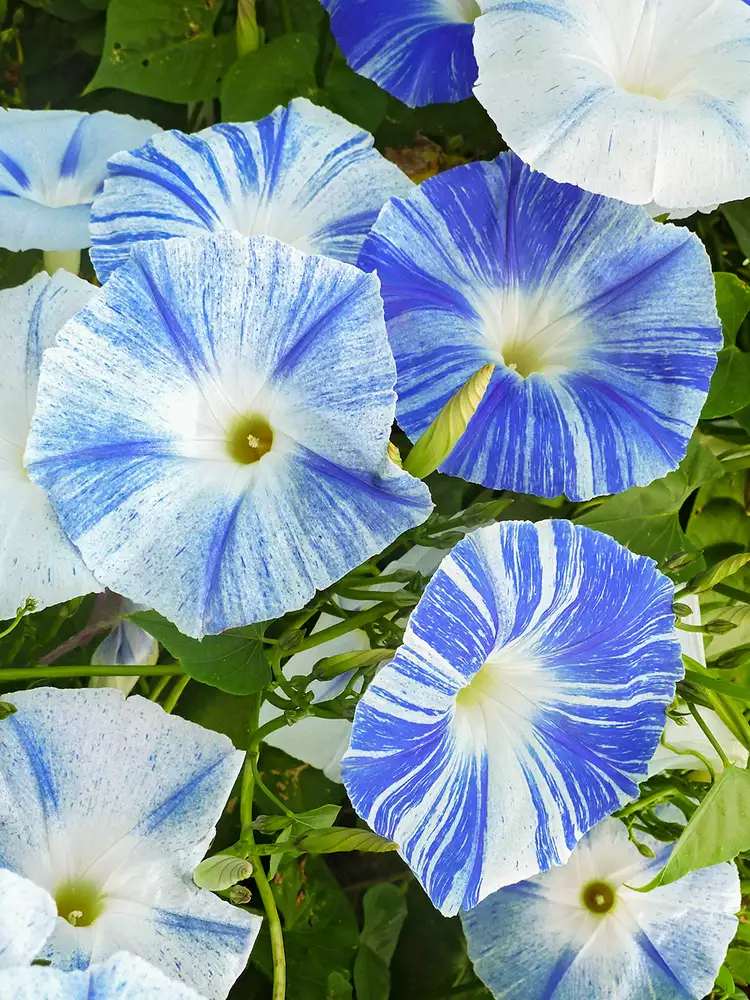
One of the prettiest flowering vines, morning glory blooms in shades of blue, pink, white, and red. It’s earned its common name because the flowers tend to close by noon, especially in hot weather. Morning glory seeds may be started indoors about six to eight weeks before the last spring frost date. Seeds can be started outdoors after the last frost date, but the onset of bloom will occur much later in the season. Soak the seeds in water for 12 to 24 hours before sowing or file away or nick off a small piece of the seed’s tough, outer coat before planting. Sow seeds one-fourth inch deep and expect to see sprouts in about a week.
Name: Ipomoea tricolor
Growing Conditions: Full sun in evenly moist, well-drained soil
Size: Up to 15 feet tall
09.Moss Rose
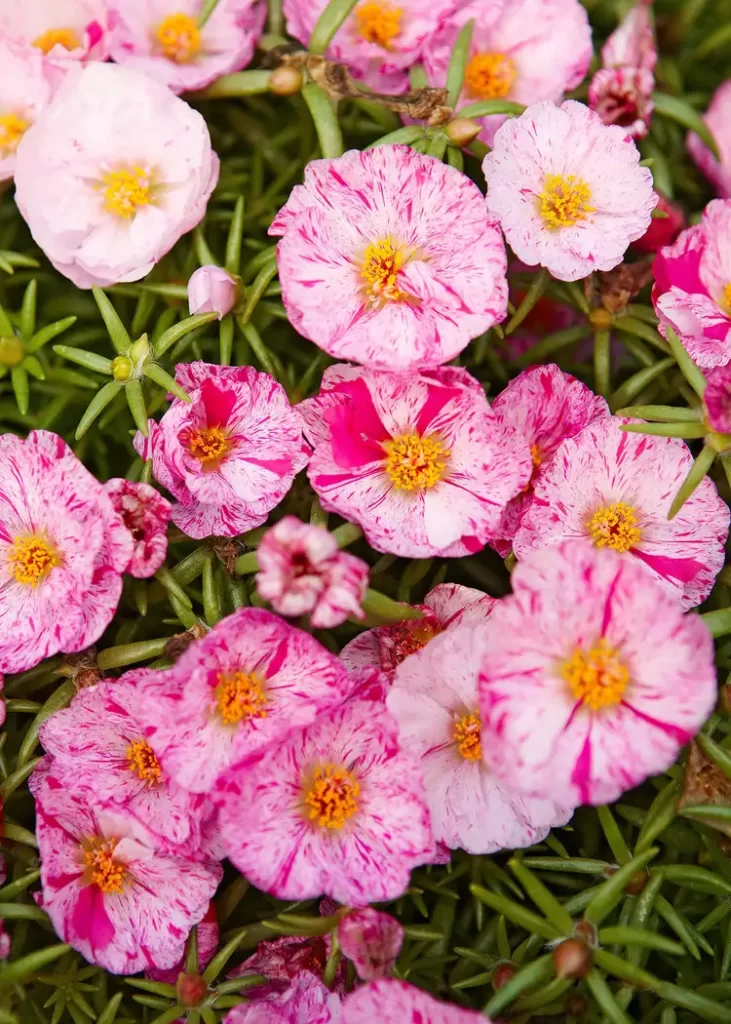
A perfect little groundcover for hot, dry spots, moss rose forms a mat of needle-like foliage and cup-shape flowers in bright shades of yellow, orange, pink, and white. Sow seeds directly in the garden after last frost date or start the seeds indoors six to eight weeks earlier. Plant the seeds one-eighth inch deep and look for sprouts in two to three weeks. You may even get more flowers than you expect because moss rose often self-seeds in the garden.
Name: Portulaca grandiflora
Growing Conditions: Full sun in evenly moist, well-drained soil
Size: Up to 9 inches tall
10.Nasturtium
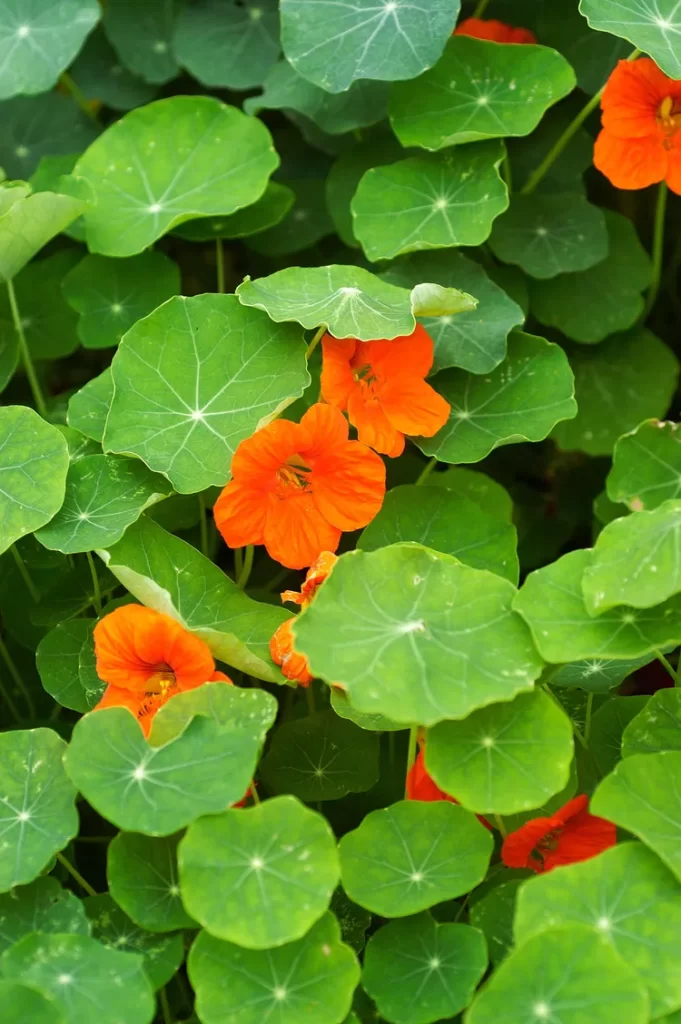
Featuring rounded, parasol-like leaves and a spicy fragrance, nasturtium blooms in cheery shades of yellow, orange, red, and crimson. Nasturtium seeds have a tough coat. Soak the seeds in water for 12 to 24 hours before sowing or file away or nick off a small piece of the seed coat before planting. Sow seeds one-half inch deep directly in the garden near last spring frost date or in pots about four to six weeks prior to last spring frost date. Look for sprouts in about a week. Plants will self seed in the garden.
Name: Tropaeolum selections
Growing Conditions: Full sun in evenly moist, well-drained soil
Size: Up to 2 feet tall
11.Sunflower
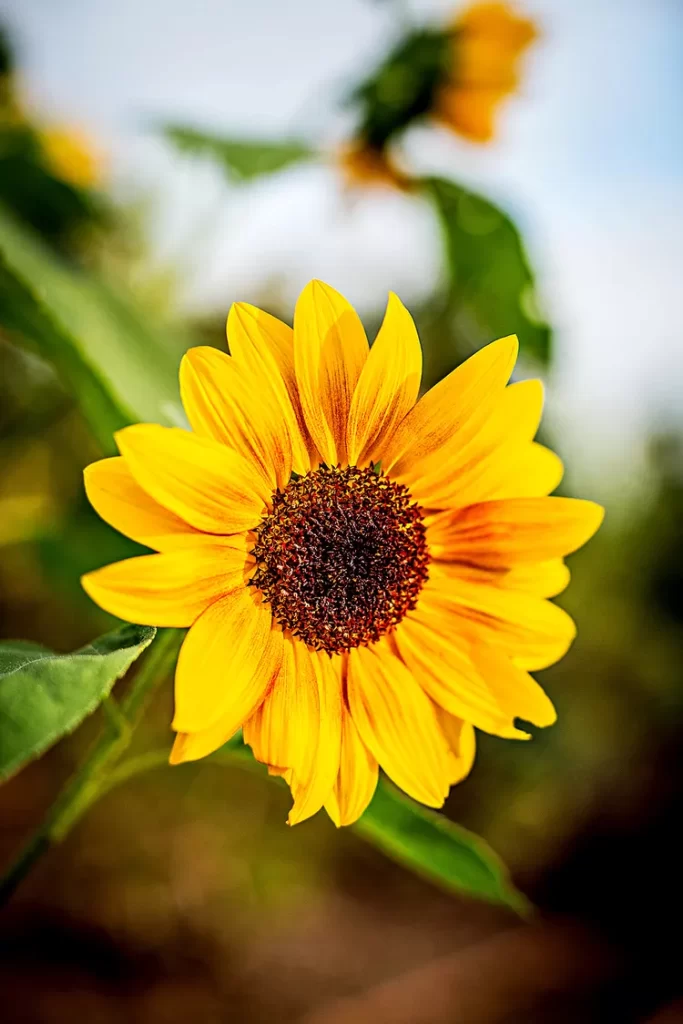
Summer would not be the same without cheery sunflowers. While the big yellow varieties with brown centers are the best known, today there’s an array of choices to grow that includes orange, red, brown, and bicolored blooms. They’re not all giants, either; dwarf varieties fit in virtually any sunny spot. Sunflowers don’t like to be transplanted, so it’s best to start them directly in the garden after the last frost date. They usually sprout about a week after planting.
Name: Helianthus annuus
Growing Conditions: Full sun in evenly moist, well-drained soil
Size: Up to 10 feet tall
12.Zinnia
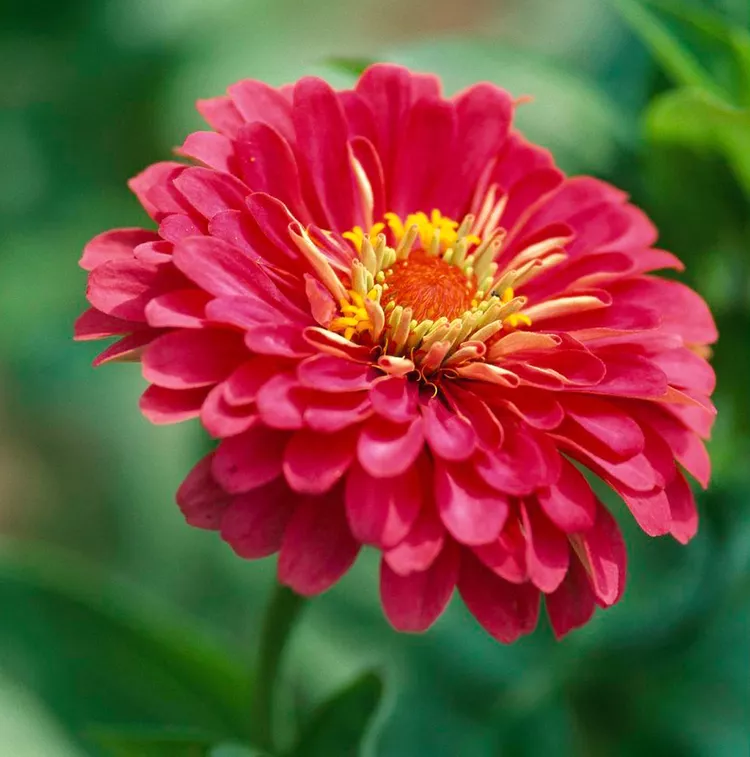
Offering a wide range of flower colors and forms, as well as heights, zinnia is a garden classic. Like many other warm-season annuals, zinnia is so fast-sprouting and easy to grow that you can easily sow its seeds directly in the ground about one-eighth inch deep after the last frost date. If you want an earlier spring bloom, start the seeds indoors four to six weeks before the last frost date. Sprouts usually appear within a week after planting.
Name: Zinnia elegans
Growing Conditions: Full sun in evenly moist, well-drained soil
Size: Up to 4 feet tall
13.Calendula
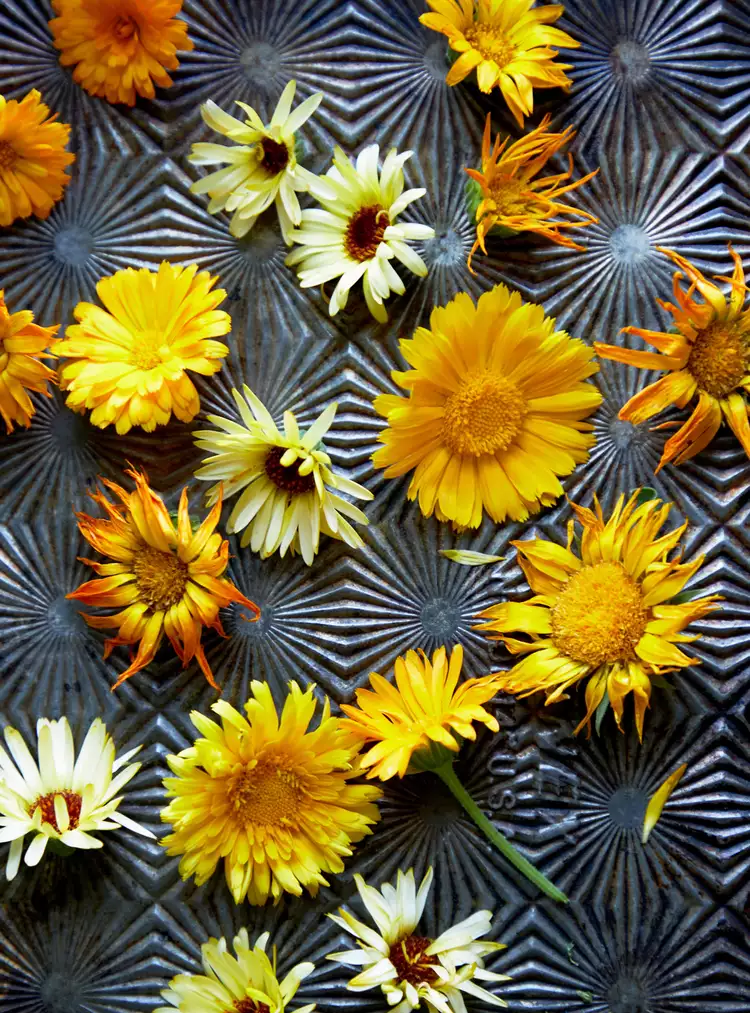
Commonly called pot marigold, calendula is grown for its aromatic daisy or chrysanthemum-like yellow to deep orange flowers. Cultivars of this plant are also available in many pastel shades, bicolors, and white. Start seeds indoors six to eight weeks before the last frost date or plant them directly in the garden right before the last frost date. Add the edible, bitter blossoms to soups, salads, or rice dishes as a colorful garnish.
Name: Calendula officinalis
Growing Conditions: Full sun in evenly moist, well-drained soil
Size: Up to 2 feet tall
14.Celosia
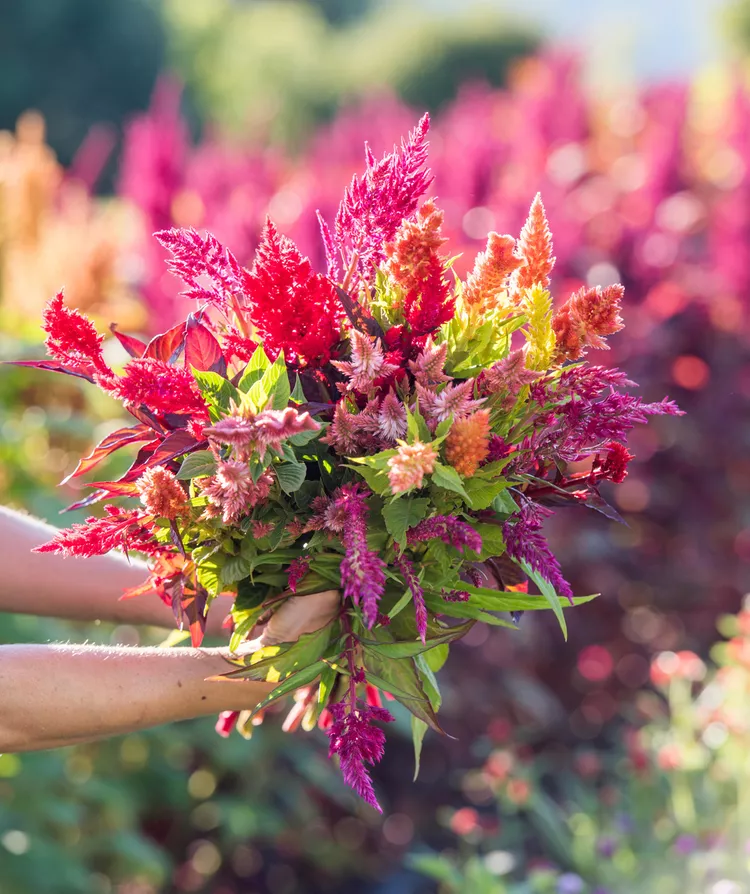
If you’re looking for a showy flower for bouquets, count on celosia. Its striking plume-like flower heads bloom in bright shades of orange, red, purple, yellow, and cream. Also known as cockscomb, this easy-to-grow addition to your garden will attract plenty of pollinators. Plant its seeds directly in the garden after the last spring frost date. For earlier bloom, start seeds indoors six to eight weeks before the last frost date.
Name: Celosia
Growing Conditions: Full sun in consistently moist, well-drained soil
Size: Up to 3 feet tall
15.Four-O'Clock
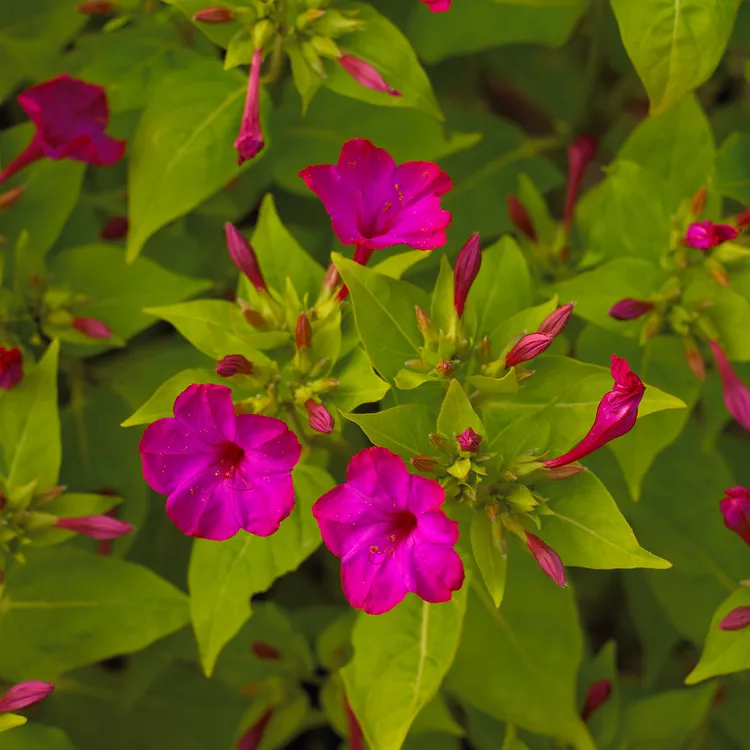
Watch the showy flowers of four-o’clock open at about 4 p.m. (hence the name) and close up again the following morning. This garden favorite features fragrant, funnel-shaped, flowers with flaring petal-like lobes. The blooms come in pink, rose, red, magenta, yellow, and white. Look for different colored flowers that often appear on the same plant. Plant seeds directly in the garden after the last frost date, or start seeds indoors six to eight weeks earlier.
Name: Mirabilis jalapa
Growing Conditions: Full sun to part shade in evenly moist, well-drained soil
Size: Up to 3 feet tall


